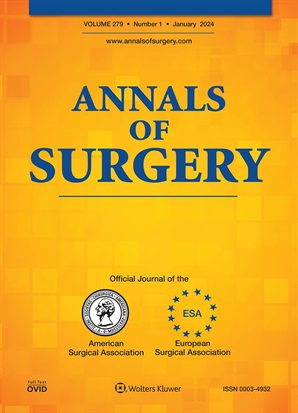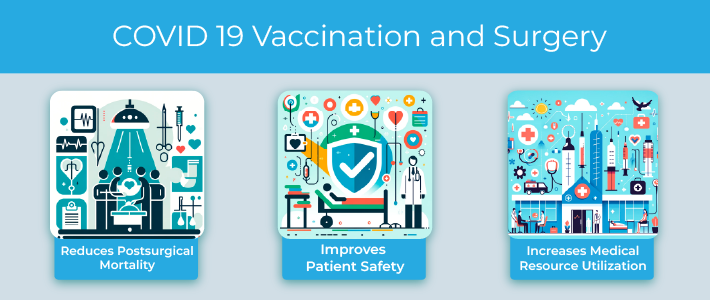New Study Reveals Vaccination Reduces Post-Surgical Mortality Risks in COVID-19 Patients
By Office of the President | Jan 9, 2024

Sherene E. Sharath, Ph.D., MPH
SUNY Downstate’s faculty remains focused on ongoing efforts that yield critical insights into the profound impact of COVID-19 infection and vaccination. Spearheaded by Sherene E. Sharath, Ph.D., MPH, director of the Department of Surgery Clinical and Health Services Research and assistant professor in the Department of Epidemiology and Biostatistics, looks into the consequences of COVID-19 infection preceding major surgical procedures. This investigation focused on aspects crucial to patient safety, post-surgical mortality rates, and the efficient allocation of healthcare resources.
The research findings are compiled in the publication Association Between Coronavirus Disease 2019 Vaccination and Mortality after Major Operations, featured in the Annals of Surgery in January 2024. The study’s senior author, David H. Berger, M.D., MHCM, FACS, University Hospital at Downstate’s chief executive officer, has been pivotal in advancing this research endeavor.

In the early phase of the pandemic, the American Society of Anesthesiologists recommended postponing elective surgeries for at least seven weeks following a COVID-19 diagnosis based on data from unvaccinated individuals—however, the optimal timing for surgery in vaccinated patients needs to be better understood.
Dr. Sharath’s team conducted a nationwide retrospective, matched cohort study to address this gap. They aimed to determine the ideal timing for major surgical procedures after a COVID-19 diagnosis in vaccinated patients and to assess the mortality risks in COVID-19-positive patients, with and without vaccination.
The study’s groundbreaking finding reveals that vaccinated patients showed no significant difference in mortality risk, regardless of whether they received preoperative COVID-19 positive or negative diagnoses. Mechanistically, Dr. Sharath’s research hypothesizes that the decreased mortality risks may be explained by the vaccine’s efficacy in lessening the severity of COVID-19-related systemic inflammation.
Moreover, the study found no correlation between the timing of COVID-19 diagnosis and postoperative mortality in vaccinated individuals, challenging the current practice of extensive preoperative COVID-19 screening and implying that such screening may not significantly enhance postoperative survival for vaccinated patients.

This research represents a pivotal step in understanding the interaction between COVID-19 vaccination, infection, and surgical outcomes. It provides valuable insights for healthcare professionals and policymakers in managing surgical care as the virus significantly impacts public health.
The complete study can be accessed here.
The collaborative effort also involved the contributions of notable individuals in Downstate’s medical community. Panos Kougias, M.D., MSc, FACS, who holds the Chair for the Department of Surgery and Clarence and Mary Dennis Professor of Surgery, lent his expertise to the study. Tomas Daviu-Molinari, M.D., research fellow and surgery resident, added invaluable support to the project, as did Erfan Faridmoayer, M.D., who served as a Surgery Resident at Downstate from 2020 to 2022. Dr. Faridmoayer was an integral part of Downstate’s iNSPIRe (Clinical Science Program for Independent Research) program as a dual research fellow with the Department of Surgery. Dr. Faridmoayer died in December 2023. He was also pursuing a postdoctoral research fellowship at Columbia University and is remembered for his contributions to advancing medical knowledge and his invaluable research.
Tags: Surgery